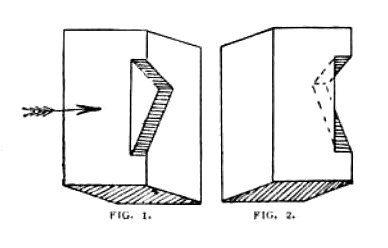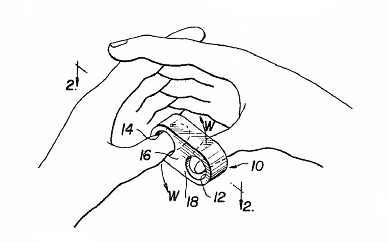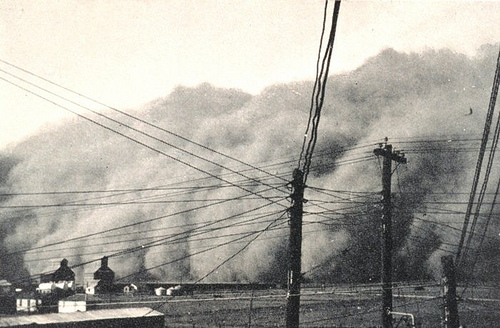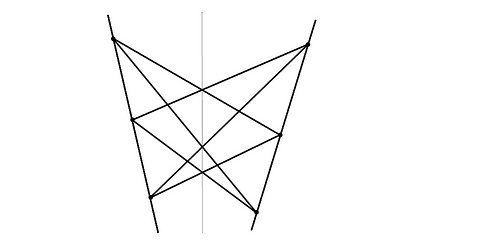“I used to wake up at 4 a.m. and start sneezing, sometimes for five hours. I tried to find out what sort of allergy I had but finally came to the conclusion it must be an allergy to consciousness.” — James Thurber
Gold Into Lead
Concerned that the men of 1768 no longer read the Bible, Edward Harwood decided to translate the New Testament into modern language. The result has been called “turgid,” “absurd,” “ridiculous,” and “one of the most discussed and insulted” Bibles of the 18th century. Samples of his work:
Before: “So then because thou art lukewarm, and neither cold nor hot, I will spue thee out of my mouth.”
After: “Since therefore you are now in a state of lukewarmness, a disagreeable medium between the two extremes, I will in no long time eject you from my heart with fastidious contempt.”
Before: “Give us this day our daily bread.”
After: “As thou hast hitherto most mercifully supplied our wants, deny us not the necessaries and conveniences of life, while thou art pleased to continue us in it.”
Before: “We shall not all die, but we shall all be changed.”
After: “We shall not all pay the common debt of nature, but we shall by a soft transition be changed from mortality to immortality.”
And here’s the Lord’s Prayer:
O thou great governor and parent of universal nature (God) who manifestest thy glory to the blessed inhabitants of heaven–may all thy rational creatures in all the parts of thy boundless dominion be happy in the knowledge of thy existence and providence, and celebrate thy perfections in a manner most worthy of thy nature and perfective of their own! May the glory of thy moral development be advanced and the great laws of it be more generally obeyed. May the inhabitants of this world pay as cheerful a submission and as constant an obedience to Thy will, as the happy spirits do in the regions of immortality.
Harwood said his translation “left the most exacting velleity without ground for quiritation.”
Double Duty

A strangely “costless” ambiguity: The H and the A are identical, but most people can read this phrase without effort.
“Another Curious Illusion”

From The Strand, July 1908:
“If you ask what Fig. 1 represents, nine people out of ten will tell you that it is a triangular piece of wood fastened to a folding screen on the inside, or something to that effect. It represents in reality a solid rectangular block of wood, with a notch cut in one side. Fig. 2 shows the view looking in the direction of the arrow, the position of the notch being shown by the dotted lines.”
Repeating Digits
CEDED, DEEDED, MUMMY, MUUMUU, and YUMMY are each typed with one finger.
Nothing Doing

In July 1979, Horace A. Knowles applied for a patent for a “novelty toy which assists the user in twiddling his thumbs”:
Heretofore no equipment has been available to the thumb twiddler to assist him in the twiddling procedure. To those twiddlers who lack sufficient coordination, not only is the repose and peace of mind which thumb twiddling normally brings not available, but the inability to carry out the twiddling successfully, including the inadvertent bumping of the thumbs against one another during the twiddling motion, causes additional frustration.
Is this satire? I can’t tell, and neither could the Patent Office — they approved Knowles’ application the following year.
Foiled Again
From now on there will be no boxing among Communists in Indiana. The State Athletic Commission announced that henceforth boxers would have to take a non-Communist oath before fighting, and would face the question: ‘Are you or have you ever been a member of the Communist Party?’
— Life, Nov. 1, 1954
Blowing in the Wind

A dust storm approaches Spearman, Texas, April 1935. Vance Johnson, a resident of western Kansas in the 1930s, described similar storms there:
The darkness was dust. The windows turned solid pitch; even flower boxes six inches beyond the pane were shut from view. … Dust sifted into houses, through cracks around the doors and windows — so thick even in well-built homes a man in a chair across the room became a blurred outline. Sparks flew between pieces of metal, and men got a shock when they touched the plumbing. It hurt to breath[e], but a damp cloth held over mouth and nose helped for a while. Food on tables freshly set for dinner ruined. Milk turned black. Bed, rugs, furniture, clothes in the closets, and food in the refrigerator were covered with a film of dust. Its acrid odor came out of pillows for days afterward.
During a dust storm in January 1895, J.C. Neal of Oklahoma A&M College reported “flashes of light that apparently started from no particular place, but prevaded [sic] the dust everywhere. As long as the wind blew, till about 2 a.m., January 21, this free lightning was everywhere but there was no noise whatever. It was a silent electrical storm.”
Inside Straight
Draw any two lines, pick three points on each, and lace them all together like so:

The crossings of the laces will always form a straight line.
Short Order
A servant maid was sent by her mistress to Ben Johnson, for an epitaph on her departed husband. She could only afford to pay half-a-guinea, which Ben refused, saying he never wrote one for less than double that sum; but recollecting he was going to dine that day at a tavern, he ran down stairs and called her back. ‘What was your master’s name?’–‘Jonathan Fiddle, sir.’–‘When did he die?’–‘June the 22nd, sir.’ Ben took a small piece of paper, and wrote with his pencil, while standing on the stairs, the following:–
On the twenty-second of June,
Jonathan Fiddle went out of tune.
— Horatio Edward Norfolk, Gleanings in Graveyards, 1861
